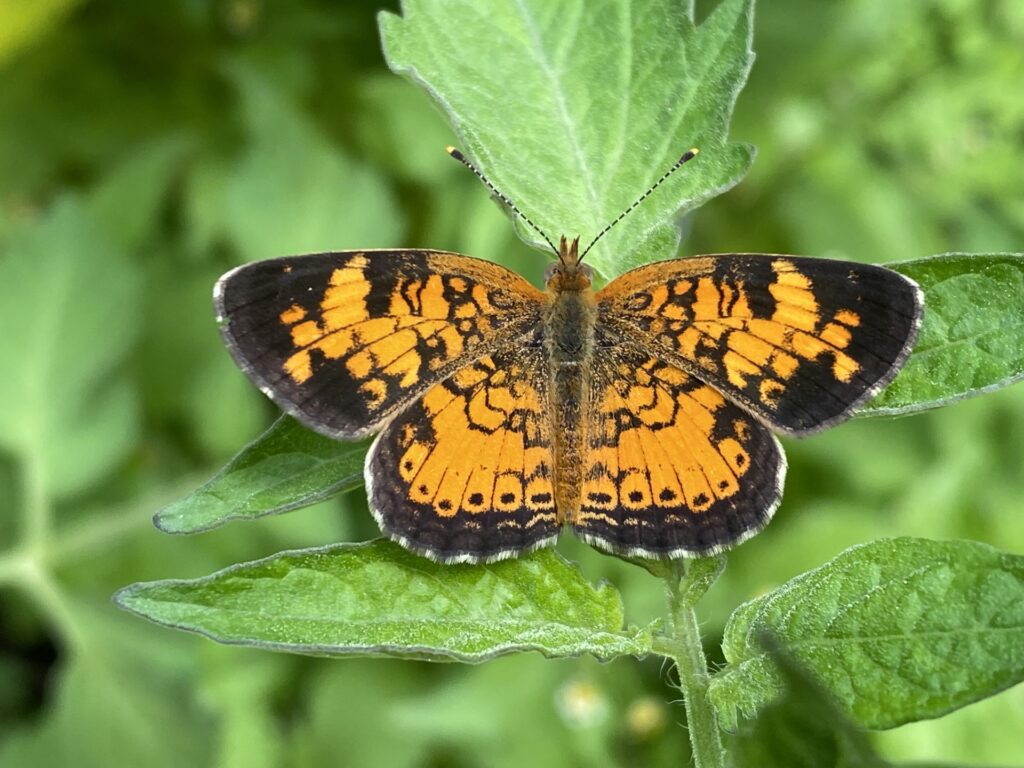
Second Annual Capital Area Butterfly Survey Results
(by Diane De Luca) After a very hot and humid July, participants in the second annual Capital Area Butterfly Survey were fortunate to enjoy favorable weather for our day of

by Diane De Luca
NH Audubon is establishing a one-acre demonstration pollinator meadow at its headquarters in Concord using non-herbicidal methods. This project will engage community members and organizational collaborators in site preparation, seeding, and ongoing maintenance of two successive half-acre pollinator meadow plots in publicly accessible fields. This project will provide a valuable workshop location for regional citizen science training. Project staff will host one training event per year in order to support ongoing citizen science monitoring of native plants and pollinator species.
The workshops will include hands-on best practices for citizen scientists when monitoring for phenological changes throughout the year as well as identification of focal species of insects that would add to the state’s knowledge base of insects of conservation need. Collaborators from UNH Extension Master Gardeners, Xerces Society, and USFWS will be included in workshops. Participants of the annual workshops will learn about how to successfully remove invasive plants using non-herbicidal methods by walking through the site coordination process. Visitors to the project site will learn about site management via the interpretive signage that will be installed at the perimeter of the meadow.


(by Diane De Luca) After a very hot and humid July, participants in the second annual Capital Area Butterfly Survey were fortunate to enjoy favorable weather for our day of

Save the dates and join us! New Hampshire Audubon is excited to partner with New Hampshire Fish and Game (NHFG) for a second year to collect long-term data on butterflies

(by Melissa Moore, NH Audubon Volunteer) Sedum and Asters are fading in your flower garden. Buttercup and Acorn squash sit in storage. Garden cleanup now tops your to-do list. There

(by Willa Coroka) Manchester’s premier Pocket Pollinator Garden is officially planted and growing at its first location at Beech Street Elementary School. The Pocket Pollinator Gardens, designed to support both

Join us on June 4 from 11am-4pm for the McLane Center Native Plant Sale. Bagley Pond Perennials will be here with a wide selection of native plants and shrubs for
Attend these four webinars and learn how to become a volunteer butterfly monitor! New Hampshire Audubon is excited to partner with New Hampshire Fish and Game (NHFG) to collect long-term